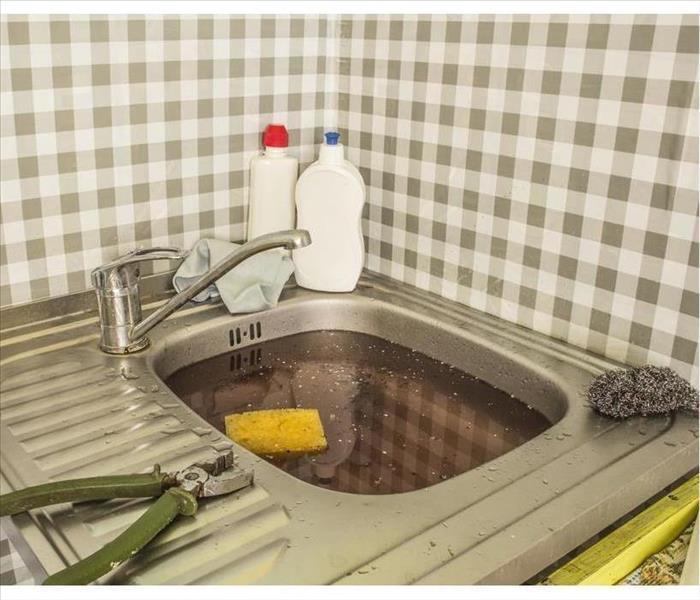Does Drain Cleaner Damage Pipes?
12/18/2018 (Permalink)
Chemical drain cleaners can be effective for clearing a clogged drain, but these substances may merely move blockages or damage pipes. Find out more about the risks of common chemical cleaning formulas.
The Type of Pipe
Chemical products may be more or less damaging depending on the formula and pipe material. Drain cleaner may:
- Damage older metal pipes
- Soften PVC pipes
- Adversely affect any pipes if used improperly
These products are very powerful and toxic. Gentler and safer enzymatic treatments can clear partial blockages within 24 hours.
The Type of Clog
A fully clogged drain calls for a mechanical, rather than chemical, cleaning method. There are several reasons why chemicals will not work on a drain that is completely blocked:
- Cleaning products may not dissolve a total blockage
- Chemicals may sit in pipes and cause damage
- An auger or snake can penetrate and extract or break up clogs
A homeowner should factor in the type of pipe and clog to choose the best drain clearing solution. If you choose to use chemicals, select a formula that is relatively safe for the pipes in your home and follow the instructions.
The Type of Cleaner
It is important to consider how cleaners work. There are several major types of chemical drain cleaners:
- Caustic cleaners, such as sodium hydroxide, give electrons to the clog and release heat
- Oxidizing cleaners containing sodium hypochlorite oxidize the clog and release electrons, heat, and gas
- Acidic cleaners, such as sulfuric or hydrochloric acid, attract electrons and release heat
Every chemical cleaner can degrade pipes. Look for the most effective and least damaging solution for the pipes in your home.
Chemical drain cleaner may be temporarily effective, but these formulas may simply move a clog further down the drain. If a clogged drain results in a toilet overflow or backup, contact a sewage cleaning service in Chardon, OH.






 24/7 Emergency Service
24/7 Emergency Service
